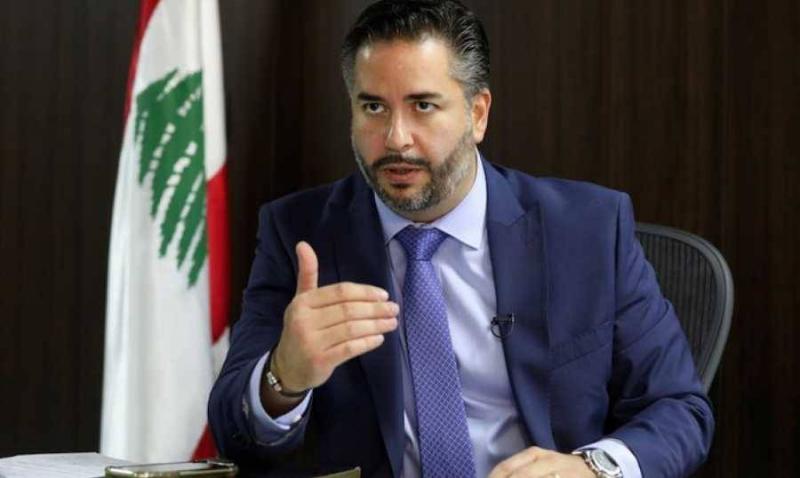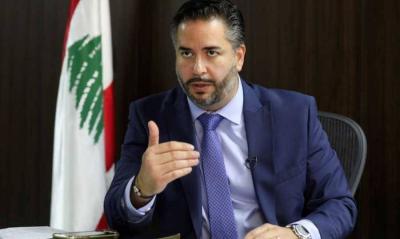Minister of Economy and Trade in the caretaker government Amin Salam pointed out that "the government has been struggling for three years to tackle the rising prices of food items and the crisis traders or crisis gangs who exploit people's needs during the overwhelming collapses the country has faced, starting with the economic collapse in 2019, followed by the Beirut Port explosion a year later, then the currency collapse which lost 95% of its value, and the loss of deposits." Salam stated in a remark that "the current war puts the government to a serious test of achieving food security and ensuring the supply of goods and raw materials to Lebanon, which imports over 90% of its needs, with only 10% covered by domestic production," affirming that "the Ministry of Economy has been operating in an emergency state for three years; therefore, we assure people of food security."
He said: "We are in a constant struggle against crisis traders who exploit citizens. There is a segment of the private sector that has shielded the country from total collapse, while a significant portion consists of traders who take advantage of people's fears and anxiety about the future and the potential loss of goods and food items in the event of war." He noted that "there have been intensive meetings for a week with various unions concerned with food security and strategic stockpiles of goods and raw materials," adding: "The unions assured me that food items and raw materials are sufficient for three months, and there are incoming shipments to the Port of Beirut that will arrive in the coming weeks, sufficient for an additional two months. Thus, we have food and consumer supplies enough for the country's consumption for five months."
He explained that "the Ministry of Economy worked with the unions and traders to distribute these materials fairly across sales points in different Lebanese regions, taking into account areas where families have fled due to the war, and we requested to double the quantities allocated to them." He pointed out that "all these reassurances from him and his fellow ministers are not believed by the people, and this has been the case for years, not just recently or due to the atmosphere of war. The people have lost their trust in the current officials and also the previous ones because we inherited decades of corruption and mismanagement."
He continued: "I do not blame the people if they hoard goods and do not heed the reassurances because the Lebanese state has succeeded in losing the trust of its citizens for decades. However, for humanitarian and national reasons, and out of compassion for the poor who live day by day and cannot afford tomorrow's bread, the wealthy should not rush to hoard for an extended period, and it is acceptable to store essential goods for at most an additional month." He considered that "this rush will undoubtedly drive prices up, as it pushes traders to hoard and then sell at inflated prices later."
He spoke about "a serious dilemma faced by his ministry and the unions concerned with food security, which is smuggling and the entry of large quantities of food and goods through illegal crossings." He said: "The size of the parallel market is huge, constituting more than 50% of the market, and there is fear that black market traders will stockpile goods in case of war or further deteriorating conditions and impose a maritime and aerial blockade, and then sell them later at elevated prices."
He revealed that "he will propose at the first Cabinet session the expansion of a security cell formed two years ago to control the hoarding and stockpiling of wheat to raise bread prices to include all food and consumer goods, activating the supervisory bodies in the ministry, primarily the Consumer Protection Department, which works throughout the week to control violations. However, its resources are insufficient compared to the size of the parallel market where the largest violations occur, which needs greater security support and legal action against them."
He added: "The Ministry of Economy is not a law enforcement agency and cannot close a violating store or supermarket without judicial permission, which is why we demanded the amendment of laws to grant ministry inspectors this authority. Our work does not require a large number of agencies if penalties on violating traders are tightened and they are imprisoned."
While seeing that "a part of the Lebanese people has adapted to the collapse of the economic situation and currency," he considered "this matter incorrect, as a large section of the Lebanese people lives day by day or receives a meager salary after the currency collapse, resulting in Lebanon showing two faces: wide segments struggle to live with dignity and have been tremendously affected by the successive crises that have swept the country, while a very narrow segment lives in luxury, having successfully exploited crises and accumulated wealth, leading to a lack of social justice."
Salam confirmed that "despite nearly five years of economic crisis, we have not seen any direction toward restoring people's deposits or a monetary policy that restores foreign confidence in the banking system and the economy of the country; rather, the gap continues to widen while the cash economy remains dominant, along with all the negatives resulting from it." He said: "There is a systematic blow to the Lebanese economy through the destruction of the agricultural sector and the burning of Lebanese soil. Agriculture was securing part of the country's foreign currency through exports, but it has lost nearly $4 billion. There are internal and external media threats exaggerating the possibility of striking the only airport in the country (Rafik Hariri Airport), which undermines tourism and drives expatriates and tourists to leave Lebanon, with bookings being canceled."
He concluded by noting that "Lebanon has been in a state of emergency for three years, and I have called for openly declaring this, especially concerning food security and energy security. This is not exaggeration but a reality experienced by the Lebanese people. A few months ago, we were only in a state of emergency due to the economic crisis and successive collapses, but today we are in a state of emergency and war. If we do not cooperate to curb the collapse, we will enter a dark tunnel that will take many years to recover from."




